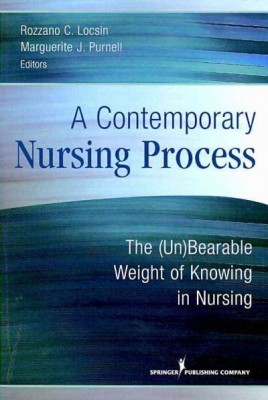| A Contemporary Nursing Process: The (Un)Bearable Weight of Knowing in Nursing Contributor(s): Locsin, Rozzano C. (Editor), Purnell, Marguerite (Editor) |
|
 |
ISBN: 0826125786 ISBN-13: 9780826125781 Publisher: Springer Publishing Company OUR PRICE: $61.75 Product Type: Paperback - Other Formats Published: April 2009 Annotation: "A Contemporary Nursing Process" re-envisions the practice of nursing by configuring caring in terms of the person the nurse cares for. Locsin and Purnell stress the importance of knowing the patient, and differentiating the person from the disease. This text addresses this highly relevant issue, and provides a wealth of insight on how to care for the patient on a personal level, while still professionally administering clinical treatment. Chapters discuss: How to appreciate persons as participants in their care, rather than as objects of care The ideal of care versus the practical demands of care Technological advancements shaping human life and nursing The consequences of "not knowing" the patient on a personal level |
| Additional Information |
| BISAC Categories: - Medical | Nursing - Research & Theory - Medical | Nursing - Nurse & Patient |
| Dewey: 610.730 |
| LCCN: 2009008410 |
| Physical Information: 1.1" H x 8.9" W x 6" (1.60 lbs) 552 pages |
| Descriptions, Reviews, Etc. |
| Publisher Description: [This book] speaks against thinking [that] we can only understand nursing from a traditional, logical, empirical approach, suggesting we need a contemporary process for exploring nursing. I can't agree more. --Journal of Christian Nursing Nurse scholars from across the globe contribute essays to this unique philosophical exploration of today's nursingÖ.This book presents an emerging view that requires nursing to look at its work through a broader and less structured lens. Challenging the structure of the traditional nursing process, the book considers nursing as reflective and thoughtful. --Doody's A Contemporary Nursing Process re-envisions the practice of nursing by configuring caring in terms of the person the nurse cares for. Locsin and Purnell stress the importance of knowing the patient, and differentiating the person from the disease. This text addresses this highly relevant issue, and provides a wealth of insight on how to care for the patient on a personal level, while still professionally administering clinical treatment. Chapters discuss:
|